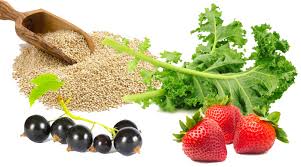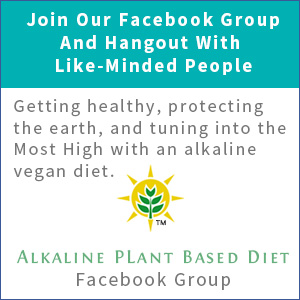What Are Phytonutrients And How Do They Work In The Body?

Phytonutrients
The term “phyto” is a Greek term that means plant. Phytonutrients means “plant nutrients” and are also called phytochemicals, because they are not essential for life like vitamins, minerals, fat, and protein are.
Phytonutrients are a plant’s defense against UV radiation, bacteria, fungus, and viruses. When we consume these phytonutrients we help protect ourselves against these diseases and conditions.
Fruits, vegetables, nuts, seeds, and grains all contain phytonutrients and these phytonutrients are concentrated in their skins, giving them their color, and protecting them against the outside world.
Phytonutrients are responsible for the blue color of blueberries, red color of sweet potatoes, and the yellow color of bananas.
There are thousands upon thousands of know phytonutrients and the number is growing. There are presently around 40,000 known phytonutrients and science is just at the tip of the iceberg as far as understanding how they specifically react in the body.
Phytonutrients protect health in many different ways. They:[1]
- Serve as antioxidants
- Enhance immune response
- Enhance cell-to-cell communication
- Alter estrogen metabolism
- Convert to vitamin A (beta-carotene is metabolized to vitamin A)
- Cause cancer cells to die (apoptosis)
- Repair DNA damage caused by smoking and other toxic exposures
- Detoxify carcinogens through the activation of the cytocrome P450 and Phase II enzyme systems
Phytonutrients are classified into different groups and some of the groups are:
- Carotenoids – Acts as antioxidants protecting the body against damage caused by free radicals. They protect against certain cancers, heart disease and age related macular degeneration. There are different types of carotenoids:
- Alpha-carotene: Body converts into vitamin A – Found in carrots
- Beta-carotene: Body converts into vitamin A – Found in leafy green and yellow vegetables (broccoli, carrots, pumpkin sweet potato)
- Beta-cryptoxanthin: Body converts into vitamin A – Found in apricots, citrus fruits, peaches
- Lycopene: Gives red and pink color – Found in grapefruit, tomatoes, watermelon
- Lutein: Protects against age-related macular degeneration – Found in kale, mustard greens, spinach
- Zeaxanthin: Protects against age-related macular degeneration – Found in black currants, blueberries, kale, spinach
- Ellagic acid: Slows the growth of cancer cells and neutralizes liver cancer-causing chemicals.
- Flavonoids: Are the largest family of polyphenolic compounds. Plants produce flavonoids to protect against harsh climate conditions, oxidative stress, and parasites. Flavonoids are divided into several subclasses:
- Anthocyanins
- Flavanols
- Flavanones
- Flavonols
- Flavones
- Isoflavones
- Glucosinolates: Inhibits cancer growth – Found in mustard, cabbage and horseradish
- Inositol Phosphates (Phytates): Are antioxidant compounds found in whole grains, legumes, nuts and seeds
- Isothiocyanates and Indoles: Anti-cancer – Found in broccoli, cauliflower, kale, turnips, collards, Brussels sprouts, cabbage, radish, turnip and watercress
- Phenols and Cyclic Compounds: Antioxidant and inhibits cancer growth – Found in citrus fruits, apples, peaches, apricots, plums, pears, grapes, cherries, artichokes, potatoes, rhubarb, red cabbage, curly kale, leeks, cherry tomatoes, celery and broccoli
- Phytoestrogens: Are plant-derived xenoestrogens that help regulate estrogen uptake by binding with and blocking estrogen receptors. Types of phytoestrogens are:
- Isoflavones: Antioxidant, regulates hormone levels, helps minimize menopausal symptoms, improves prostrate health – Found in soy
- Lignans: Antioxidant, regulates hormone levels, helps minimize menopausal symptoms, improves prostrate health – Found in flaxseeds
- Polyphenols: Have antioxidant, anti-inflammatory, anti-carcinogenic, and protect against oxidative.
- Resveratrol: Antioxidant and anti-inflammatory phytonutrient that slows the aging process and combats atherosclerosis, cancer, heart disease, and high cholesterol – Found in grapes, blueberries, raspberries, and mulberries
- Saponins: Lowers cholesterol, reduces risk of colon cancer – Found in beans and legumes
- Terpenes: Anti-bacterial and anti-carcinogenic – Found in cannabis
More: Tips for switching to a vegan diet
More: A whole food plant-based diet
[1] http://www.ars.usda.gov/aboutus/docs.htm?docid=4142
[2] http://www.webmd.com/diet/phytonutrients-faq







